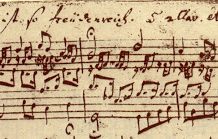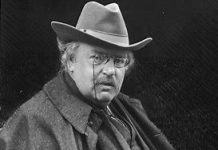Over at OnePeterFive, editor T.S. Flanders urges us all to charity and not to ‘excommunicate’ each other (perhaps we might say ‘shun’). It’s a worthy endeavour, but therein he makes the following claim:
in year of the reign of Jesus Christ 2025, all SSPX priests are in communion with the local bishop and Pope Francis.
Are they?
Mr. Flanders continues:
The SSPX has those things, so I will commune with them. In fact, because of those things, every Catholic already communes with them at their own Mass, of whatever rite. They are Catholic, whether you like it or not. (emphasis in original)
Sure, they’re Catholic, as is everyone baptized into the Catholic Church with proper rites. But post-Baptism, being ‘in communion’ admits of degrees. There are those in full communion, those definitely not in communion, and those mostly, or mostly not in communion. We may say that anyone who has a valid Baptism and Holy Eucharist is, by definition, ‘in communion’. The Eastern Orthodox, who have both, are more in communion than the local high Anglicans, with only the first.
Where does the SSPX stand?
Here is some food for thought, which I hope prompts some further discussion:
- Does the SSPX ask permission of the local bishop before they set up their chapels in a diocese? If they do, and such permission is refused, do they go ahead anyway?
- What would the various local bishops, where they do have their chapels, say about their being in communion? Or is communion for the SSPX only one way?
- Speaking of one way, what would Mr. Flanders say of the Crisis podcast with Mr. James Vogel, the official spokesman for the SSPX, who says they advise their members never to attend a Novus Ordo Mass, nor any other Traditional Mass, for that matter? Are these truly the policies of the SSPX? If Mr. Voegel’s views are not those of the SSPX, then why is he the spokesman – and what are the views of the SSPX?
- Then there is the case of Father Michael Johnson, who in a homily claimed that every Novus Ordo ordination was ‘invalid’, which means that 99.999% of Catholics are attending sham Masses, and not receiving the Body and Blood of Christ, which would stretch the merciful providence of God, and leave most Catholics out in the cold.
- If the SSPX never attend anything but SSPX Masses and liturgies – wherever they go – and if they believe – even under the surface – that the Novus Ordo is not a Mass, then they are an island unto themselves, which would create problems for full communion with the rest of the Church, insofar as they believe there a ‘rest of the Church’. The SSPX would be the Church (which is what I suspect many of them think, at least in some inchoate way).
- As a thought experiment – to make this concrete – imagine I were traveling with a fellow Catholic SSPX friend. We get to a town on Sunday, the only Mass the local Novus Ordo – or even FSSP – parish. I attend, he goes for brunch. If I had done that, I would consider myself in grave sin, in violation both of the First Commandment and a fundamental precept of the Church. I’d be a lapsed Catholic. How are we in communion, or, at least, full communion?
- What would Pope Francis himself say of the SSPX? Or, for that matter, what would Pope Benedict XVI and John Paul II? It is one thing to tolerate a group, for the salvation of souls, without admitting that they are in full communion, which the Church has never done. If Mr. Flanders has any document saying so, I’d be happy to read it. The various edicts of Pope Francis trying to regularize certain aspects of the SSPX, back in the Year of Mercy 2015 – confession and marriage in particular – are not declarations of full communion, as even a brief perusal will attest. They are concessions to a group in ‘irregular’ communion, and the extent of the irregularity difficult to pin down. Their marriages, for one thing, have to witnessed by a local diocesan priest to be valid.
- The SSPX reject the Second Vatican Council, or large swathes thereof, along with many of the teachings, disciplinary and otherwise, since. Even compromise agreements have not been accepted.
- What is one to say of the FSSP, toiling away in the trenches, striving to live within and be obedient to the local bishop and the hierarchy of the Church, while the SSPX does more or less whatever it wants or, as they might put it, deems necessary? It must be somewhat debilitating.
- With their origins in Archbishop Lefebvre’s ‘sacramental emergency-measures act’ – defying the Pope, who had promised him a bishop – the SSPX is inherently fissiparous and unstable. To have comm-union with others, one first needs union within oneself. Bishop Williamson invoked the same ‘necessity’ for his own illicit ordinations, and so left communion with the SSPX. Are he and his followers in communion? One such priest is reportedly in my own diocese, saying Mass in the basement of a house, or in some such location. Parishioners have left the local TLM to follow him, something the bishop has explicitly forbidden. Who’s in communion with whom? The three bishops who remain in the SSPX, like Lefebvre back in 1988, are well on in years, and they will have to face a Rubicon soon. Will they seek the requisite mandatum from Pope Francis, or whoever succeeds him, to ordain successor bishops? Or go ahead regardless?
That all said, I desire almost all that the SSPX desires – chant, Latin, orthodoxy, piety, and all the rest of it. It’s just the means on how to return to that glorious Tradition, which must be done somehow, someway, within the hierarchical structure of the Church that God has willed. Obedience is better than sacrifice, in part since obedience is one of the most difficult of sacrifices. Saint Philip Neri quipped that sanctity could be found in the span of three fingers, the height of one’s forehead – the mortificatio rationalis, the mortification of the reason, which means, basically, that our ways are not God’s ways, and we must be patient, and long-suffering.
A final word on Mr. Flanders’ comparison of current sedevacantists to Saint Vincent Ferrer, which has some vague similarities, but is more different than alike. Saint Vincent was not a sedevacantist, for he believed there was a Pope, even if he was erroneous as to who was the real Pope. The schism in his time was based on two back-to-back fractious conclaves in 1378, resulting in two claimants to the papacy. This was indeed very difficult for a layman, even a priest, to discern. Saints were opposed – Catherine of Siena sided differently than her fellow Dominican, Father Ferrer – and what are we to say when saintly Dominicans may go their separate ways?
Modern sedevacantists, on the other hand, have no such justification. They either declare the 2013 conclave ‘null and void’ due to some esoteric knowledge they have gleaned. Or they depose the current Pope, or even multiple previous Popes, based on perceived doctrinal or moral errors.
Although some abstruse and esoteric matters should be left to canonists and theologians, our Church is not a gnostic enterprise, with the truth of things known only to experts. God prefers to keep things simple in His benevolent providence, so that our consciences may be peaceful. In matters such as Mass, marriage, priesthood and pontiffs, validity should be presumed.
And it’s not a question of excommunicating each other – a judgement definitely above my pay and spiritual grade – but rather of ‘getting along’. For communion is about things we share and live in common- going to Mass, celebrating the sacraments, believing the same things, conversations and all the rest of it. There is a legitimate diversity in the Church, and we should rejoice in that. We all must follow our properly informed consciences, and if people decide they can attend the SSPX, that’s between them and God. I’m not sure what I might do in different circumstances than the ones I’m in, by the grace of God. His providence is mysterious, working through the foibles of this world, and we must pray to the Holy Spirit to show us the way to the Way, the Truth and the Life.
I agree with Mr. Flanders, that we need more unity, and more charity – unitas in caritate, et caritas in unitate, a fitting thought in these holiest of days, when Christ prayed ut unum sint. But this must be founded on the truth, which is often right before our eyes.
A blessed Holy Saturday to one and all, and may all the joys of Easter be yours. +












